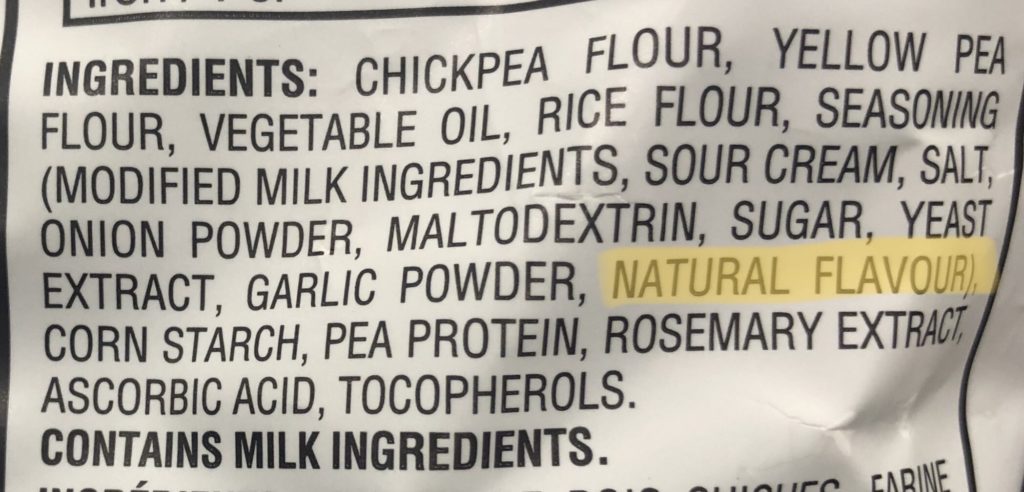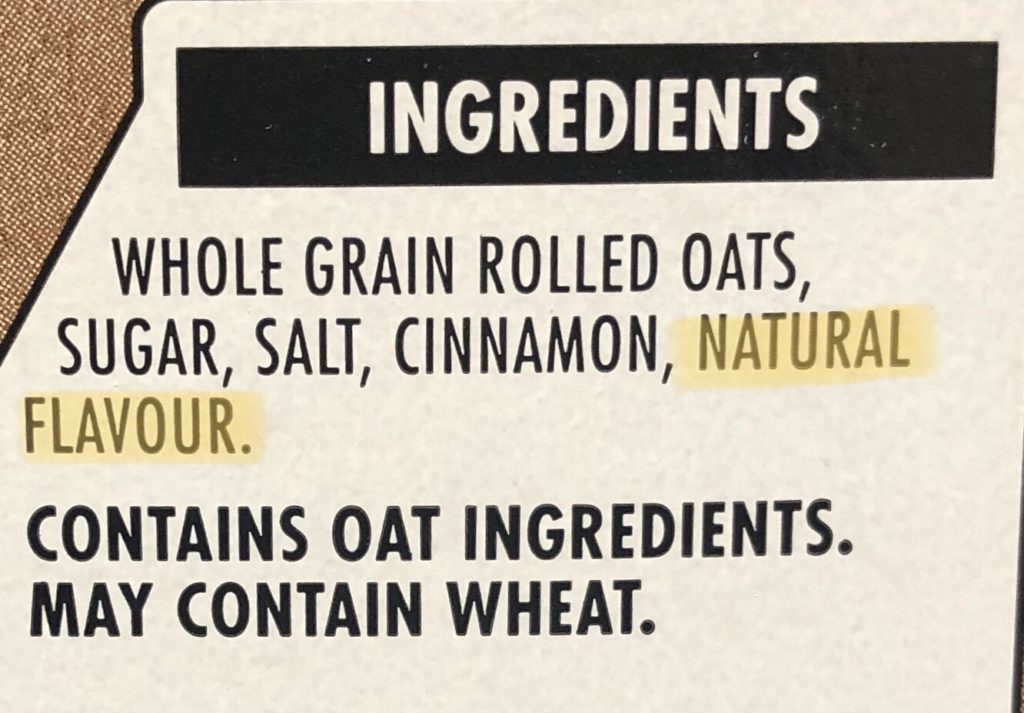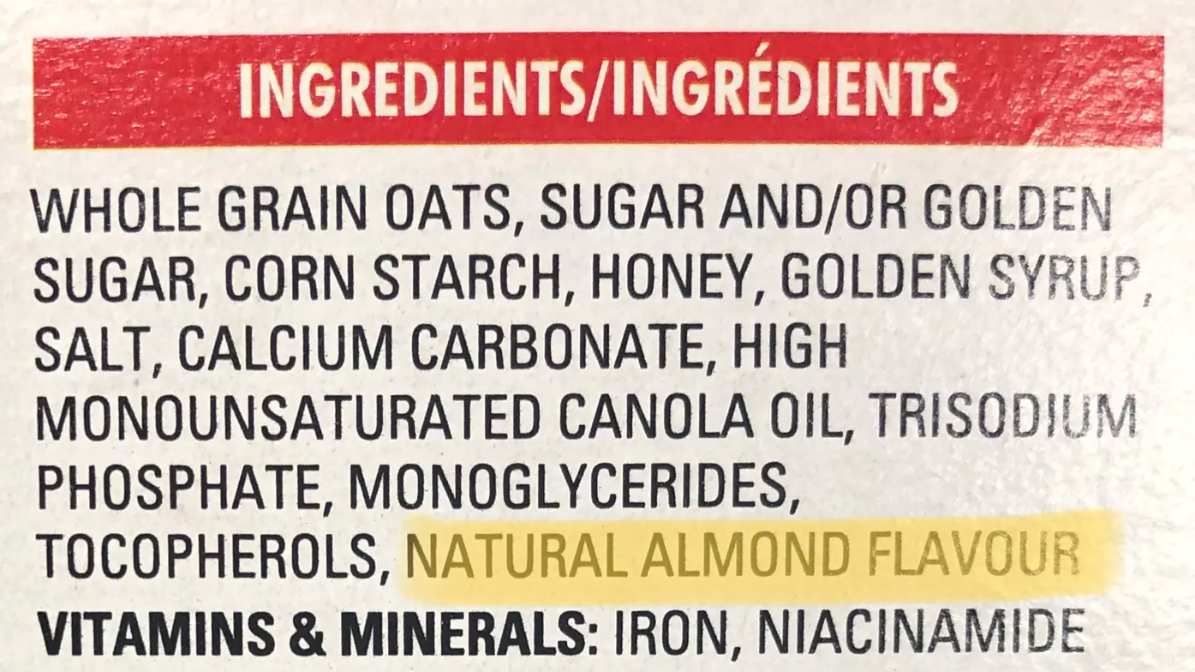You’re standing in the protein bar aisle reading through the ingredient list. Everything looks recognizable until you get to the last ingredient ‘natural flavours’ …what the heck is that?! Continue reading for everything you need to know about this ingredient, and whether or not it is something you should avoid.
What are Natural Flavours?
The ingredient natural flavour is commonly found on the ingredient list of packaged food products such as protein bars or snack bars, cereal, crackers, and flavoured drinks. Since the ingredients on a food package are listed by weight, ‘natural flavours’ usually appears toward the end of the list on food packages.
The term ‘Natural Flavour’ is regulated by Health Canada and the FDA, so food companies must meet specific requirements to legally use this ingredient on an ingredient list. The FDA definition of natural flavour is as follows:
“The term natural flavor or natural flavoring means the essential oil, oleoresin, essence or extractive, protein hydrolysate, distillate, or any product of roasting, heating or enzymolysis, which contains the flavouring constituents derived from a spice, fruit or fruit juice, vegetable or vegetable juice, edible yeast, herb, bark, bud, root, leaf or similar plant material, meat, seafood, poultry, eggs, dairy products, or fermentation products thereof, whose significant function in food is flavouring rather than nutritional.”

How Are Natural Flavours Made for Use in the Food Industry?
Put simply, a natural flavour is any component, such as an essence, or oil, extracted from a plant or animal product through the processing of that plant or animal product. This extract needs to come from a natural product (plant or animal) for the manufacturer to use the term natural. This can be done by roasting, heating, or any other processing method. To use this term, the ingredient also needs to have the sole purpose of altering flavour, rather than impacting nutritional value.
To put this into perspective, we can think of this process like making coffee. The coffee beans are the natural plant ingredient, and the coffee is the natural flavours extracted. Once these flavour oils or essences have been extracted from the original product, they might be freeze-dried and added to protein powder for example, or added in a liquid form to your favourite flavoured soda water.

Why are natural flavours used?
So why the mystery? Why don’t companies just list ‘coffee bean extract’, for example, on their food label rather than the vague term natural ingredients? I reached out to a handful of companies that list natural flavours as an ingredient, and their answers were fairly consistent.

The term natural flavour is used for a couple of reasons:
1. The recipe for a food product is proprietary, so companies don’t want to disclose exactly which ingredients were used to develop the flavour profile.
2. The term natural flavour often encompasses multiple extracts and essences used to create a flavour. For example, the flavour that you get from a lemon cones from the combination of thousands of oils and essences that together give us the flavour that we perceive as ‘lemon’. For a company to make a product lemon flavoured, they have to mimic this naturally occurring combination by using a variety of plant extracts in a specific combination. Often if a single extract is used, such as vanilla bean extract, you may just see that listed on the ingredient list.
Bottomline: Should You Avoid Natural Flavours?
So are natural flavours something that should be on our radar to avoid while grocery shopping? In my opinion, no. If food allergies are a concern, the company must declare any priority allergens used in the ‘Contains’ or ‘May Contain’ statement under the ingredient list. If you’re unsure about whether a food item has come into contact with an allergen, it’s always best to contact the company to be sure. In my experience, companies are happy to share this information with you.

Otherwise, keep in mind that natural flavours are typically in foods that have gone through more processing, which we want to limit as much as possible anyway. Where possible, I always suggest choosing products with fewer ingredients and additives, where the flavours are coming from the actual ingredients themselves. But, if you see this ingredient in one of your favourite products, it’s not something to be concerned about.



Good info presented in an understandable fashion